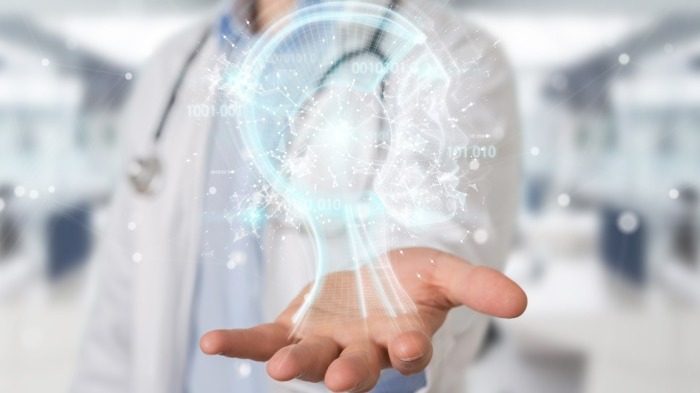Interactive Clinical AI

The Interactive Clinical AI stream focuses on the use of artificial intelligence and machine learning methods to develop usable patient models and personalised predictions of diagnosis and care. The stream also studies how clinicians and patients interact with health technologies and how Large Language Models can improve patient care.
The work undertaken by the stream can be partitioned into 3 research activities:
- Clinical AI applications. This addresses an emerging approach for personalised disease treatment and prevention that takes into consideration individual variability in genes, environment, and lifestyle. AI methods can be applied for personalised diagnosis, prognosis, and treatment prediction purposes alike. The key research question of this activity is, “How can AI and machine learning methods be applied to personalise healthcare?”
- Human-technology interaction. Information and communication technologies have been increasingly used for various healthcare tasks. They are utilised by both clinicians (for example, automated decision support) and patients (for example, activity and medication monitoring). The key research question targeted by this activity is, “How can we improve interaction of people – both clinicians and customers – with clinical technologies?”
- Clinical text processing. Clinicians spend a considerable portion of their time managing textual documents, like letters, reports, prescriptions, and more. Large Language Models have the potential to autonomously perform many of these tasks and free up patient time. The key research question targeted by this activity is, “How can we integrate Large Language Models into the clinical workflows to ease the clinicians’ burden and improve patient care?”
Sample projects undertaken by the Interactive Clinical AI stream:
- Evolution of clinician trust in decision-support AI tools
- Personalised coaching applications for physiotherapy
- Use of natural language processing in general practice
- Large Language Models for clinical text summarisation
- Fine-grained predictions for frail patients admitted to hospitals
- Detection of freezing-of-gait episodes with EEG data
- Prediction of treatment response in melanoma patients
For more information or to join our team
Contact Professor Shlomo Berkovsky, shlomo.berkovsky@mq.edu.au
Team members
| Professor Shlomo Berkovsky | Stream Lead |
| Dr Hao Xiong | Research Fellow |
| Dr Nuaman Asbe | Research Fellow |
| Dr Jonathan Vitale | Research Fellow |
| Dr Kexuan Xin | Research Fellow |
| Dr David Fraile Navarro | Postdoctoral Research Fellow |
| Mr Satya Vedantam | Research Technology Officer |
| Mr Ronnie Taib | PhD Candidate |
| Mr Maksym Skrypnyk | PhD Candidate |
| Ms Claire Kelly | PhD Candidate |
Selected stream projects
- Characterising human cognitive processes through behavioural and physiological analysis
- COVID-19 cough screening tool
- Frailty identification for older people using electronic hospital records
- Trust in automated medical imaging technology
Research centre
Content owner: Australian Institute of Health Innovation Last updated: 11 Feb 2025 7:50am
